Monthly intention
“I believe that Saint Francis is the example par excellence of care for the vulnerable and of an integral ecology lived out joyfully and authentically” (LS 10).
By Deacon Clayton Nickel
Laudato Si’ Movement Spiritual Consultant
Living God, you call us to be good stewards of this earthly home, strengthen us to care for your creation; forgive us when, through our greed and indifference, we abuse its beauty and damage its potential.
Empower us, through your Spirit to nurture and love the world, that all creation may sing to your glory, in harmony as you intended.
Help us this October and as we close the Season of Creation on the Feast of St Francis, on the path of ecological conversion, and prosper the work of our hands for integral ecology and climate justice for all and our common home.
That we might be channels of your Peace which passes all understanding… Amen.
Prayer for ecological conversion
By Fr. Tim Galvin
Laudato Si’ Animator in Riwoto, South Sudan
Creator God, we thank you for the wonder and beauty of all you have created. You have created us humans to the protectors and carers of creation. Yet we are the ones who are now spoiling the works of your hand.
Your Son Jesus Christ is still suffering and dying in the suffering earth and the suffering poor. Forgive us our sins against your creation and against the poor of the world.
We join with the whole of creation in thanking you and praising you.
We thank you Creator God for all the good things we enjoy, help us to live more simply.
Give us the courage that you gave to the Apostles on the day of Pentecost to proclaim and advocate for the care of our common home and the poor. Amen.
This prayer was adapted from the upcoming Laudato Si’ Movement prayer book. Learn more about Father Tim Galvin’s story here.
Following St. Francis in hope and generosity
By Christopher Rice
Laudato Si’ Movement Theological Consultant
Christopher Rice is an associate professor of philosophy at Lynn University in Boca Raton, Florida, USA. His academic interests include human well-being, environmental ethics, and Catholic Social Teaching.
“Jesus… said to them, ‘Let the children come to me; do not prevent them, for the kingdom of God belongs to such as these. Amen, I say to you, whoever does not accept the kingdom of God like a child will not enter it’” (Mark 10:14-15).
“I believe that Saint Francis is the example par excellence of care for the vulnerable and of an integral ecology lived out joyfully and authentically” (LS 10).
Confronting the challenges of the present day can be overwhelming.
From the climate crisis to poverty to various forms of violence and discrimination, the crises we face require careful attention to facts – facts about nature and human society that are often discouraging.
Some people argue that authentic solutions are impossible. Others dwell relentlessly on the facts, looking to strategize, or compromise, or invent some quick resolution.

In the Gospels, Jesus approves of prudent forethought, asking, “which of you wishing to construct a tower does not first sit down and calculate the cost?” (Luke 14:28).
Our work to confront a problem like the climate crisis or global poverty needs to be realistic, attuned to the true nature of the crises, the communities most at risk, and the political realities that constrain our initiatives.
Yet, the joyful ethos of St. Francis and Jesus’ welcoming of the children point to another dimension of Christian spirituality which is likewise required for meeting the current moment.
As a complement to the practical work of studying facts, weighing alternatives, and moving people to action, God calls us a radical hope and generosity that is not so immediately tied to the practical.
In the Christian context, hope is a theological virtue – a result of God’s grace – by which we anticipate with trust God’s promise of eternal fulfillment in heaven.
St. Francis had a deeply otherworldly perspective. While he rejoiced in the physical, tangible, splendid beauty of nature, he also appreciated this in light of Jesus’ redeeming actions toward the world. This gave St. Francis a sustaining hope in all his trials.
Similarly, St. Francis reached out toward his neighbor with radical generosity, responding based on God’s moving impulse and, again, God’s grace in his life.
Whether in his compassionate greeting of the leper or his sensitive mentorship of disciples, St. Francis was present to those around him, acting with Christian joy and authenticity. There is a certain “timelessness” to St. Francis, as he was deeply rooted in unwavering love for his Savior more than in fear or calculation of worldly things.
Similarly, Jesus’ call to “accept the kingdom of God like a child” points toward the need for radical hope and generosity.
Jesus is not telling Christians to be childishly naïve – to remain ignorant of the facts of the world and how the powerful will often exploit the weak.
Yet, there is much to learn from children. The boundless trust in God that characterizes Christian hope is similar to the affectionate bonds that can be formed by a young child, and the in-the-moment generosity to which we, like St. Francis, are called, also finds an image in the simple love that children can show at their best moments.
How do we combine a sober, hard-headed engagement with the challenges of the 21st century and a childlike openness to hope, generosity, wonder, and joy? It’s not easy.
Many influences push us in one direction or the other (or distract us from both) and balancing it all can take the patient work of a lifetime. Acknowledging the importance of both value sets is a part of it. And we can also call on God’s help and grace in embracing these essential virtues.
Reflection Questions:
- How is God calling me to grow at this moment – toward greater engagement with the facts underlying our current crises and toward greater hope and generosity?
- What is one way I can emulate the spirituality of St. Francis this month and “accept the kingdom of God like a child”?
Not letting waste go to waste
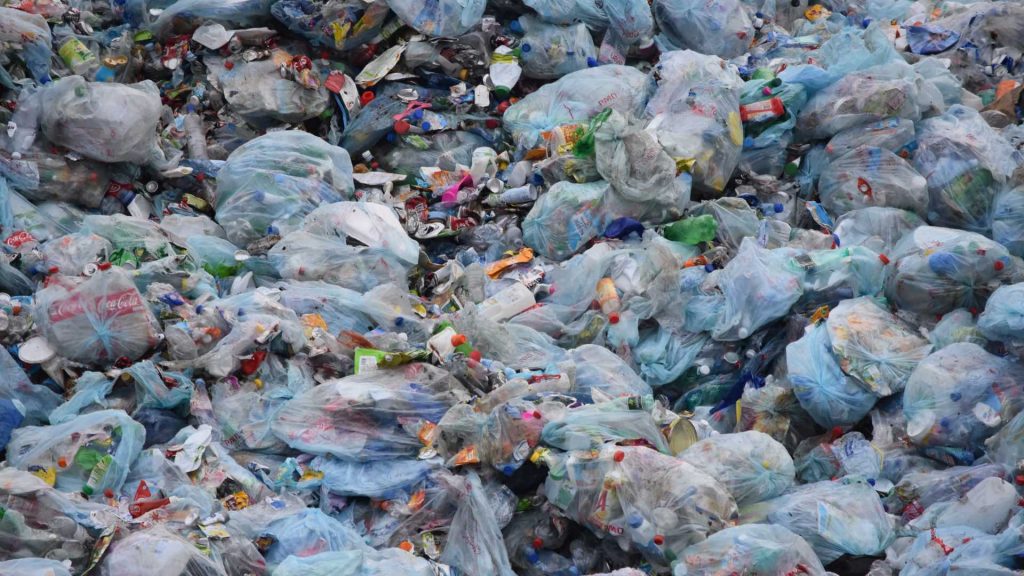
Manizales, Caldas, Colombia
By María de los Ángeles Casafus Carrillo & Paola Calderon
Laudato Si’ Movement Spiritual Consultant, Friend of LSM in Colombia
When we think of God’s creation, we resort to images of a living nature, a pristine ecosystem that is hard to find these days.
However, when we understand ourselves as a species that integrates that nature, and we become aware of the environment that we have generated from the unbalanced society-nature relationship, we recognize the urgency of generating structural transformations in how we interact among ourselves and with the ecosystem we integrate.
Our region includes a territory with an exceptional universal value: the coffee cultural landscape of Colombia. We hear creation’s cry in several voices, among them, that of conserving natural and cultural heritages.
Among the requirements to advance towards a sustainable development is the integral management of solid waste generated in both rural and urban areas. In Manizales, 96.7 percent of the solid waste generated is disposed of in a sanitary landfill and only 3.3 percent of the total waste receives some type of use for its reincorporation to the productive cycle.
Considering the target of the United Nations Sustainable Development Goal N.12, which establishes that the rate of recycling and new use of waste by 2030 should reach 17.9 percent, the decision-making of the local authorities must transition to a circular economy.
All of us are called to contribute to the care of our common home and the sustainable development of our regions.
Therefore, we must assume social and environmental responsibility from the principles of prevention and precaution, managing the social and environmental aspects and impacts generated, so that, in this way, we harmonize knowledge management with the needs and cries of God’s creation.
Amidst chaos, creation thrives
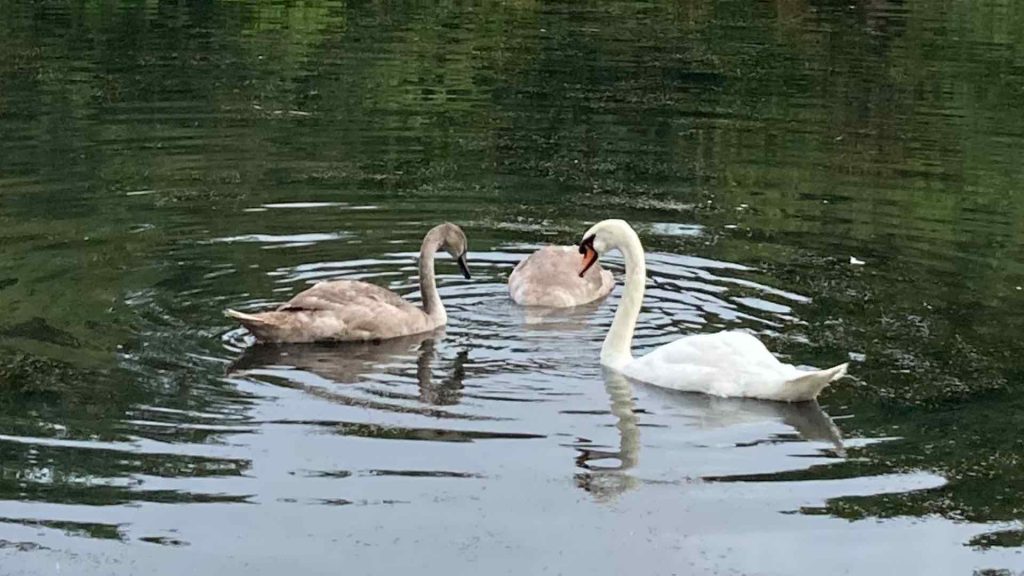
Alexandra Park, Glasgow, Scotland
By Dr. Marie Cooke
Laudato Si’ Movement Theological Consultant
In the midst of a world still suffering from the COVID-19 pandemic, and the devastating effects of the climate crisis on so many communities, still life goes on.
God’s work of creation continues in new life coming into being, like these cygnets with their mother. We thank you Lord for the wonders of all your creation.
My ecological conversion: a garden story
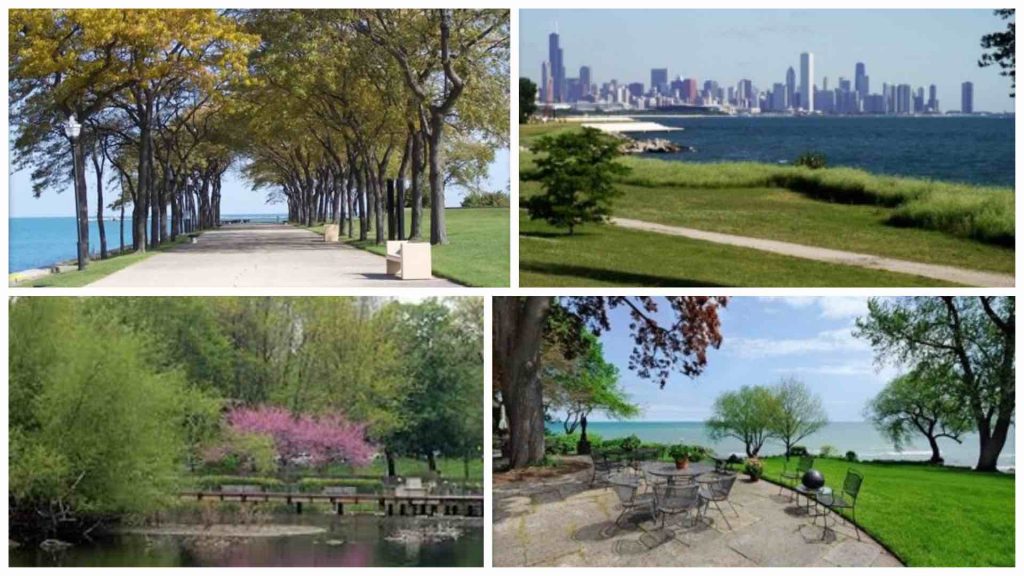
By Dawn M. Nothwehr, OSF, Ph.D.
Laudato Si’ Movement Theological Consultant
It was a quiet late May evening in Windom – my small childhood southwestern Minnesota hometown. Having finished planting our large vegetable garden, I sat with my mother on the backdoor steps of our three-bedroom stucco house, sipping ice cold lemonade.
The newly planted garden was but a short distance away. The air was moist with the petrichor of the recently turned soil, seasoned with whisps of sweetness from the freshly mowed grass, and the piney scent from the tall spruce trees artfully placed about the yard.
Through the lacy pine branches, the late evening sky signaled the day’s impending end with shades of pinkish red orange and contrasting shades of grey. A soft high pitched insect chorus lulled us into restful meditation.

Dawn M. Nothwehr, OSF, Ph.D
Then spontaneously harmonizing with that peaceful flow came my mother’s words: “Only God can make the garden grow.” Those faith-filled words stirred up something deep within me, but my 12-year-old self could not name it, so I just held them in silence for many years.
Indeed, my adolescent persona required a certain kind of rebellion at being “forced” to help weed, tend, and harvest the garden produce. Yet secretly, I loved working in the garden.
I was quite awestruck by the fact that you could put this hard, flat, little yellow thing in the ground, and weeks later you could find a sweet corn plant in its place! It was only some 30 years later that I would be able to name what had so deeply moved me that evening.
Years later, on my 25th jubilee as a Sister of St. Francis I had the privilege of going on a pilgrimage to Assisi, Italy, and the region of Umbria, the “Franciscan Holy Land,” where St. Francis and St. Clare lived.
As we journeyed from place to place, no one could miss the lush verdancy of the fertile fields of sunflowers and the vineyards covering the rolling hills. Those striking vistas combined with St. Francis’ Canticle of the Creatures reawakened my many “garden experiences” and the profound sense of awe and wonder I experienced that evening with my mother.
Like me, but in their own time and place, St. Francis and St. Clare came to know well what I had only tasted on that late May evening – the vestiges of an incarnate God cradling them in love and mercy in the miraculous, lush nest of creation!
For about 30 years I lived in Chicago. Though admittedly, there are many conveniences to city life, I always had a real love-hate relationship with those environs.
Everything is huge, impersonal, paved over, fast-paced, human built, constantly in motion, competitive – often violent. For me, the “saving grace” was the park system that abuts Lake Michigan.
There, some semblance of intimacy with the web of life pervaded amid trees, grass, flowers, open sky; people smiled and greeted one another; and, Lake Michigan stretches out to the horizon, while the rhythm of the waves lap against the sands of extensive beaches setting the tone and pace of more peaceful living.
The manifestations of the sacred there are quite distinct from those found in all the cavernous cathedrals that dot street corners of that sprawling metropolis.
Yes, St. Francis was definitely “on to something!” The vestiges of the incarnate God can be seen all around us – if we not only look but open our eyes to see!
How 5 volunteers gathered 428 ‘Healthy Planet, Healthy People’ petition signatures
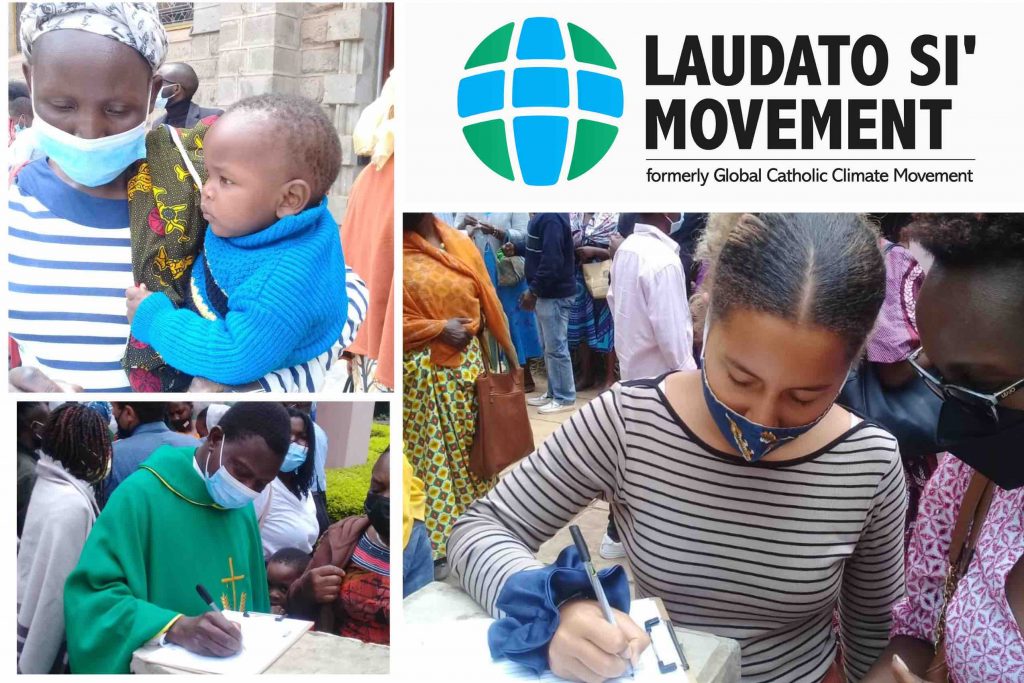
The Laudato Si’ Circle of St. Austin’s Parish Msongari in Nairobi wanted to put a face on the climate crisis.
They wanted their fellow parishioners to know that the people who sit in the pews with them week after week are as worried about the climate crisis as is Pope Francis, who inspired millions by writing his encyclical Laudato Si’.
One recent weekend after six Masses, five volunteers with the circle set out to gather signatures for the “Healthy Planet, Healthy People” petition. They had only eight minutes after each Mass because of COVID-19 pandemic meeting restrictions.
Yet the handful of volunteers collected 428 signatures as the community overwhelmingly joined the effort to tell world leaders how they should care for our common home during two upcoming United Nations summits.
Sign the ‘Healthy Planet, Healthy People’ petition
“As a culture, Africans tend to respond better when there is a face attached to a cause. The more familiar the face, the better the response. It feeds into the whole community culture,” said Maryanne Owiti, a member of the circle who helped gather signatures.
“Parishioners expressed enthusiastic support for the initiative and looked forward to feeling [Laudato Si’ Movement’s] presence in the community.”
She said the circle opted to have an in-person signature event, rather than online, during the ecumenical Season of Creation because that way “a global cause feels local.”
Tens of thousands of people around the world have also signed the petition that encourages world leaders to bring Laudato Si’ to life with crucial agreements that will emerge out of two UN summits: the 26th UN Climate Change Conference (COP26), to be held from 31 October to 12 November, and the UN Conference on Biodiversity (COP15), to be held virtually from 11-15 October and in-person from 25 April to 8 May 2022.
The petition calls on world leaders to “act with great urgency” and “tackle the climate emergency and biodiversity crisis together,” among its other urgent requests. Sign the “Healthy Planet, Healthy People” petition today.
Irene Kamunge works for the National Environment Management Authority in Kenya and was one of the 428 people who signed the petition at St. Austin’s.
“I believe that Christians have a responsibility to take care of the environment, which is the creation of God,” she said.
She called the petition a “very noble idea” and invited all people to join her in taking action ahead of the two UN summits.
“To end poverty and disease in the world, it is inevitable that the global community must address climate change, since it affects the quality of air, water, and biodiversity and availability of food for humankind,” she said.
Eunice Omino works for the United Nations Environment Programme and also attends St. Austin’s. She signed the petition shortly after its launch in May, and was proud of how so many of her fellow parishioners expressed “solidarity with Pope Francis” by signing the petition.
“Our leaders will not act unless we send a clear signal that we want climate justice,” she said. “We all need to advocate together for climate justice.”
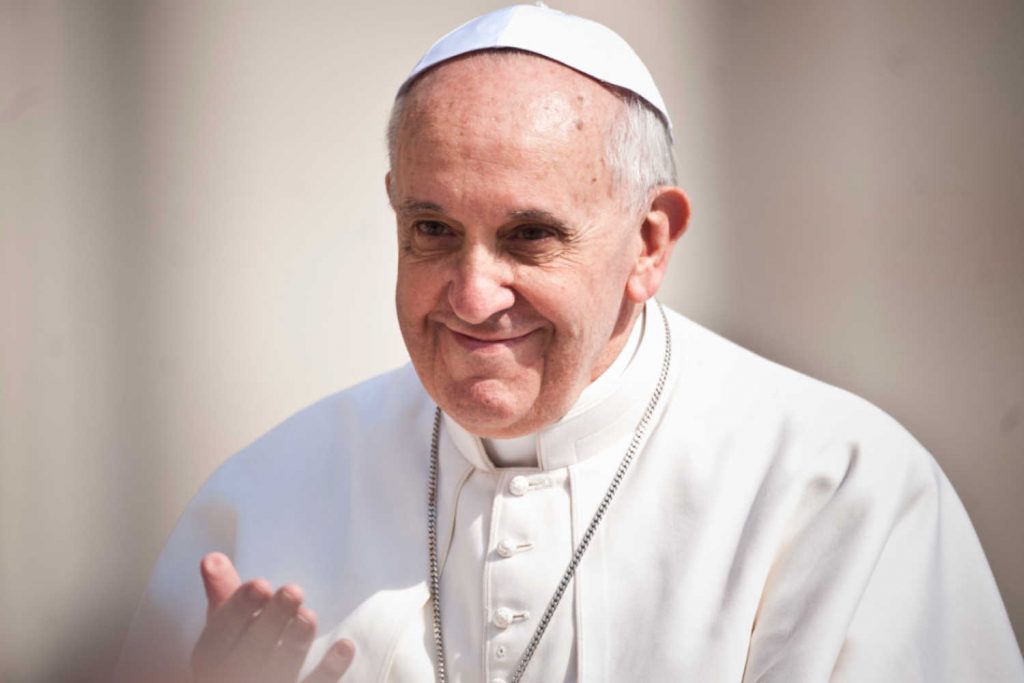
Mazur/catholicnews.org.uk
How many signatures can you gather?
Pope Francis is planning on attending the United Nations 26th Climate Change Conference, which will be held 31 October to November 12 in Glasgow. Here’s how we can support His Holiness: By signing the “Healthy Planet, Healthy People” petition.
Already signed it? Host a challenge amongst friends to see who can secure the most signatures. Now is our time to raise a united Catholic voice ahead of this crucial opportunity. We won’t get this moment back, so we must act now! Sign the petition.





